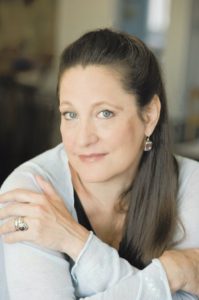
After participating in an inspiring writing workshop with Jayne Anne Phillips as part of The 15th International Conference on the Short Story in English in Lisbon this past June, Jayne Anne kindly agreed to answer a few questions for the ASB. The resulting email interview gives our readers a glimpse into the many roles that Jayne Anne plays and her take on creative writing in a post-literate society.
Sabrina: Please use three adjectives to describe yourself.
Jayne Anne: Three words: these might change day to day, but today I’d say: Determined. Questioning. Hyper-sensory aware.
Sabrina: Your early short story writing has been labelled “dirty realism.” Would you consider that label appropriate?
Jayne Anne: Dirty Realism was a term coined by Granta magazine to describe certain American writers coming into their own at that time. Who knows what it means. Realism that is more ‘real’ because it’s sensory, or realism that describes, in part, working people – people who build or make or tend rather than moving money on a computer? ‘Dirty’ as in ‘sexy?’ Whatever, it’s a phrase that hung on.
Sabrina: Your uneasy relationship to teaching is well documented. In your essay, “Why She Writes,” you have remarked that “[t]eaching shoots writing in the head.” I would imagine that it is difficult to have enough time for your writing while directing a strong creative writing program and teaching budding writers. How does being a writer inform your teaching, and conversely, how does teaching and being a university professor inform your writing?
Jayne Anne: Not “uneasy” in the least! I’ve taught writers over the past thirty-five years, and I do so as a writer. Part of the dialogue in teaching has to do with balancing one’s time and creative energy with all else, other than writing, that goes on in a writer’s life. When writers mentor younger writers, we are modeling not only the importance of writing and reading as a writer; we model how to live a ‘writer’s life’ that gives to a community, that celebrates diversity and contributes to a humane society.
Sabrina: Let’s come back to your role as Creative Writing Director at Rutgers University-Newark (RU‑N). In 2007, The Atlantic named the creative writing program at RU‑N one of the “Five Up-and-Coming Programs” in the U.S.; in 2015, you were awarded a 50,000 dollar seed grant from the chancellor of your university to build up your program. What changes have occurred in recent years, and what is your vision for the program and the writers it produces?
Jayne Anne: I spent 13 years starting and building an MFA program at Rutgers University-Newark, from establishing a program where none existed, to building the Writers@Newark Reading Series as a central part of the curriculum, to establishing four Community Service programs, including our Newark High Schools program, to seeing the program awarded a townhouse as a home, to finally taking the program to Full Funding three years ago. It was sometimes difficult and always satisfying work that offered opportunities to so many. I plan to retire and leave academics soon, in the knowledge that the program will change and evolve. RU‑N MFA reflected my concerns from 2005 to 2018. I wish the program all good fortune in the years to come.
Sabrina: Speaking of change, I’d like to now ask you a few questions about potential outside influences on your writing. It’s no secret that we live in a rapidly changing world. Change can positively impact people’s lives, but more often than not, people worry about it. As a writer with a lyrical voice whose career started off as a poet, does the trend to create a true lingua franca – to unify and simplify English – concern you?
Jayne Anne: Language itself is constantly changing and reflects the energy of ‘new’ voices. I find that the plethora of voices and points of view only enriches literature. Speakers and cultures are alive – not so the technology that has become the ‘container’ for ideas.
Sabrina: It has also been suggested that we live in a post-literate society. Do you agree with those who propose that reading and writing no longer occupy a central position in America? Or is that simply another doomsday scenario?
Jayne Anne: The trend against fiction, reading fiction, to reading only nonfiction, or memoir, or how-to books, is not encouraging. Powerful writing is getting done, but the circle of readers holding books in their hands grows smaller. There’s no putting the genie back in the bottle, but social media is surely the ‘upside-down’ of modern life. Our data is used and abused, elections are stolen, tribalism is underscored, dialogue is discouraged, and conspiracies thrive. I find these aspects of modernity far more disturbing than any fear of the transformation of language.
Sabrina: Finally, what can we expect from Jayne Anne Phillips in the future?
Jayne Anne: I’m writing a novel that is extremely compelling to me, and I look forward to the long, surprising process of discovering it.
22,493 Total Views, 15 Views Today






